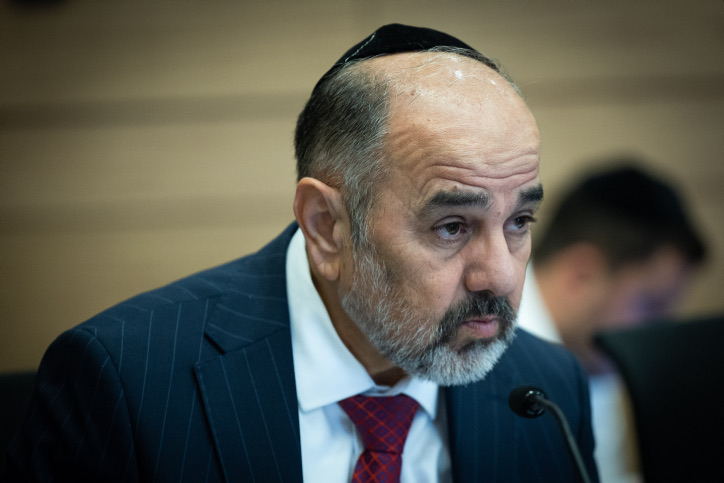
During a budget hearing earlier this month, the Knesset came to a preliminary agreement to raise the Ministry of Welfare budget by more than 700 million shekels ($191 million). If the budget increase is approved by the Knesset Finance Committee and passes two additional readings in the Knesset, the ministry’s budget will reach 11.5 billion shekels ($3.2 billion).
The increase is significantly less than than the additional $1.5 billion shekels ($410 million) requested by the ministry due to increased needs brought on by Israel’s war with Hamas.
A significant part of the budget increase will be directed towards various welfare services required due to the war and the increase in the number of Israelis making use of the ministry’s services. But according to Davar’s analysis, the updated budget also includes cuts of 201.7 million shekels ($55.1 million) in some ministry departments and public services, including services for people with disabilities, people with developmental disabilities, and services for populations supported by welfare services.
The budget includes cuts in several items, including 72 million shekels ($20 million) in community care for people with disabilities; 57 million shekels ($16 million) in services for people with developmental disabilities; 27 million shekels ($7 million) in community services for seniors and veterans; and 6 million shekels ($1.6 million) in the budget for development, construction, and renovations in municipal welfare institutions and welfare offices.
An additional 38.3 million shekels ($10.5 million) was deducted from an item called “personal and social services,” a budget allocated for various organizations to provide social services and community services to different groups supported by welfare. This budget is mainly transferred to local authorities for services to populations supported by welfare, such as programs to support employment, family violence prevention centers, and programs for at-risk children. Support for boarding schools and youth centers, organizations that help terror victims, sexual assault response centers, and organizations aiding vulnerable families also receive funding from the “personal and social services” budget line.
As part of the budget, 15 positions in the ministry’s headquarters were also cut, part of a broader reduction in human resources in government offices.
Alongside the cuts, 909 million shekels ($249 million) was added to various budget lines. Among these allocations are 462 million shekels ($126 million) for home care for people with disabilities, 259 million shekels ($71 million) for human resources at the ministry headquarters and central office services, and 77 million shekels ($21 million) for local authorities. Additionally, an extra 40 million shekels ($11 million) has been designated for “corrections and assistance to courts,” and the reserves held by the ministry have been boosted by 71 million shekels ($19 million).
In the treasury's budget pamphlet, the adjustments and cuts are presented in a manner distinct from the tables outlined in the budget law. According to the treasury, the ministry’s budget has been simultaneously augmented by 805 million shekels ($220 million) and reduced by 97 million shekels ($27 million). The descriptions of these adjustments in the pamphlet are largely general and do not delve into specific budget items, focusing instead on overarching increases or decreases across various subcategories not detailed in the published budget proposal.
Of the 805 million shekels ($220 million) added to the budget, 345 million shekels ($94 million) are earmarked for funding services directly related to the war, such as establishing welfare offices in reception centers for people displaced by the war; expanding human resources in those frameworks, including in social service departments, and reception centers; providing material assistance to those in need; and addressing and treating victims of sexual assault. An additional 460 million shekels ($126 million) will be directed toward expanding the number of patients served and improving services, including the creation of support roles for people with disabilities and raising wages for that role to enhance patient care within these frameworks.
The treasury also indicates a reduction of 97 million shekels ($27 million) from the ministry’s budget, with 85 million shekels ($23 million) slashed from the broadly defined category of operational budgets. Approximately 6 million shekels ($1.6 million) has been cut from budgets that financially support various organizations, significantly affecting services such as food security initiatives and rehab centers and clubs for disabled and elderly people. Another approximately 6 million shekels ($1.6 million) has been trimmed from advertising, consulting, and training budgets, making it more challenging for the ministry to promote its services and encourage those in need to seek assistance.
Before the updated budget was brought to the Knesset, the Welfare Ministry requested an increase of 1.5 billion shekels ($410 million) due to the ongoing conflict. The final budget only saw an increase of 909 million shekels ($249 million), falling far short of the ministry’s requested amount. The ministry had hoped to avoid broad cuts affecting its operations, but like other departments, it had to absorb the reductions as proposed.
Moreover, a significant cut of 300 million shekels ($82 million) is anticipated for a food distribution initiative funded by the Interior Ministry spearheaded by the ultra-Orthodox Shas party. This reduction constitutes half of the originally allocated 2024 budget. The project involves distributing food packages to needy families three times a year. One distribution has already taken place during the fall holidays, with more expected in 2024. Following a Supreme Court appeal, the Welfare Ministry will revise eligibility criteria for the project, subject to reassessment by 2024.






